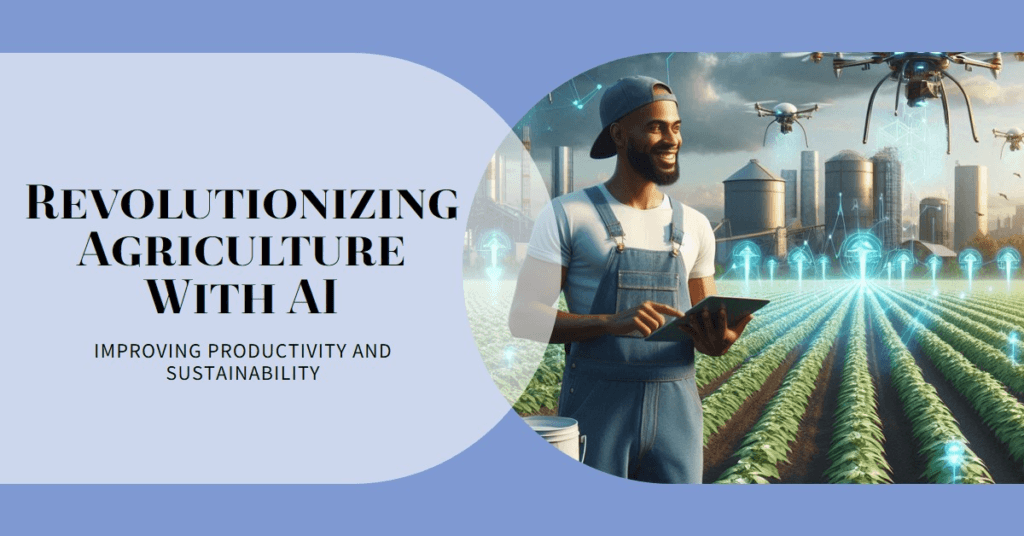Artificial Intelligence (AI) is no longer just a buzzword in India’s tech landscape; it’s a transformative force driving innovation across various sectors. As AI in India continues to mature, its impact on healthcare, agriculture, and finance in India is becoming increasingly profound. This article explores how AI is revolutionizing these key industries and highlights the Indian startups and government initiatives leading the way.
AI in Healthcare: Revolutionizing Patient Care and Diagnostics

AI is making significant strides in India’s healthcare sector, where it is being used to improve diagnostics, patient care, and even drug discovery. AI-powered tools are helping doctors make more accurate diagnoses by analyzing medical images, predicting disease outbreaks, and even suggesting treatment plans.
Key Examples:
- Niramai: This Bengaluru-based startup has developed a novel AI-based solution for early detection of breast cancer. Using thermal imaging and machine learning algorithms, Niramai’s technology is non-invasive, radiation-free, and affordable, making it accessible to a larger population.
- Qure.ai: Another Indian AI startup, Qure.ai, uses deep learning to interpret radiology scans. Their algorithms can detect abnormalities in X-rays, CT scans, and MRIs with high accuracy, helping radiologists diagnose conditions faster and more accurately.
- Government Initiative: National Digital Health Mission (NDHM): Launched by the Government of India, NDHM aims to create a unified digital health ecosystem. AI plays a crucial role in this mission by enabling telemedicine, health data management, and AI-driven predictive analytics to improve healthcare delivery.
AI in Agriculture: Enhancing Productivity and Sustainability

In a country where agriculture is the backbone of the economy, AI is emerging as a game-changer. From crop monitoring to predictive analytics, AI is helping Indian farmers increase productivity, reduce waste, and make better decisions.
Key Examples:
- CropIn: A Bengaluru-based agri-tech startup, CropIn uses AI to provide real-time data analytics for farmers. Their platform helps monitor crop health, predict yields, and manage risks, thereby increasing efficiency and profitability for farmers.
- Fasal: Fasal is another Indian startup that leverages AI to provide precise and actionable insights to farmers. Their AI-powered platform monitors farm conditions in real-time and provides recommendations on irrigation, fertilization, and pest management.
- Government Initiative: Pradhan Mantri Fasal Bima Yojana (PMFBY): The PMFBY scheme, which provides insurance coverage to farmers, is increasingly integrating AI to assess crop damage and expedite claims processing. AI-driven satellite imagery and data analytics are making the scheme more efficient and farmer-friendly.
AI in Finance: Redefining Banking and Financial Services

The financial sector in India is undergoing a significant transformation with the integration of AI. From fraud detection to personalized banking, AI is enhancing the efficiency, security, and customer experience in financial services.
Key Examples:
- Razorpay: A leading fintech startup in India, Razorpay uses AI to detect and prevent fraudulent transactions. Their AI algorithms analyze patterns in transaction data to identify and block suspicious activities in real-time.
- ZestMoney: This fintech startup leverages AI to offer credit to consumers who may not have access to traditional banking services. Their AI-driven credit scoring system assesses risk and enables instant loan approvals, making financial services more inclusive.
- Government Initiative: Digital India: The Digital India campaign, which aims to transform India into a digitally empowered society, has AI at its core. In the financial sector, AI is being used to enhance digital payments, improve credit scoring, and provide personalized financial products to the masses.
Conclusion: India’s AI-Driven Future
The rise of AI in India’s tech industry is more than just a technological evolution; it’s a revolution that is set to reshape the country’s key sectors. From improving healthcare outcomes to enhancing agricultural productivity and redefining financial services, AI is unlocking new possibilities for innovation and growth in India.
Indian startups like Niramai, CropIn, and Razorpay are at the forefront of this transformation, driving AI adoption across industries. Meanwhile, government initiatives like NDHM, PMFBY, and Digital India are laying the groundwork for AI’s widespread integration into India’s socio-economic fabric.
As AI continues to evolve, its potential to address India’s unique challenges and drive inclusive growth is immense. The future of India’s tech industry, and indeed its broader economy, is increasingly AI-driven, making this an exciting time for innovation and progress.
#epicinfinite #epicarticle #epicblog
How do you see AI shaping India’s future? Share your thoughts and experiences in the comments below!
Latest Posts
EARTH UNDER CHANGE: A MAJOR SHIFT UNFOLDS
The ground beneath our feet is moving — not in the usual, slow geological sense, but in ways that sc…
Trump Announces Plans for India-US Trade Deal, Praises PM Modi
In a major statement that could redefine global trade relations, US President Donald Trump declared …
India to Build Sukhoi Passenger Jets with Russia
In a landmark step toward strengthening India’s aviation manufacturing capabilities, Hindustan Aeron…
Nvidia Becomes First Company to Hit $5 Trillion Valuation
NVIDIA HITS $5 TRILLION MILESTONE In a record-breaking achievement, Nvidia has officially become the…
ISRO to Launch Heavy CMS-03 Satellite on November 2
After the triumphant success of Chandrayaan-3, which made India the first nation to land near the Mo…
India launches Special Intensive Revision of voter rolls across 12 states
In a landmark move to strengthen electoral transparency, the Election Commission of India (ECI) has …















